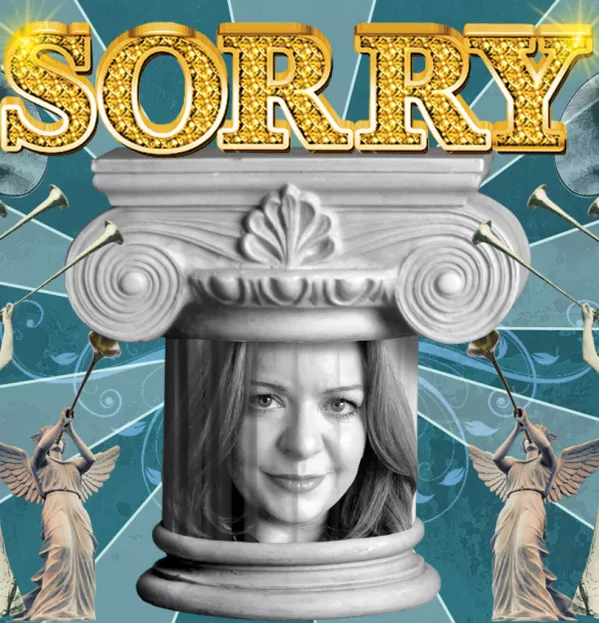There’s a word so powerful that it can transform relationships, evaporate anger and make everything better. If you knew that there were two syllables capable of such sorcery, wouldn’t you chuck ’em over a problem like fairy dust? Wouldn’t you make it your business to get really good at using them? Contrary to what Elton John might tell you, sorry isn’t the hardest word, it’s the most useful.
I drum this message into my students. I show them. It works wonders when they’re late. If you come in, offer a genuine apology and a solid explanation, then we’re almost OK - as long as it doesn’t turn into a habit.
Through the years, I’ve encountered many a late student. There are those who believe they are unseen. Not overlooked but actually invisible. They silently glide into the room, standing still as a statue when they think they’ve been rumbled. I have boomed “I CAN SEE YOU!” at a frozen-in-time plumber on more than one occasion.
There are the ones who fake the amount of effort it took to arrive, panting as they fling open the door. They spout tall tales of a journey so epic even Tolkien might consider it “dragging on a bit”. The whiff of stale smoke breath and a pocket stuffed with Lucozade tell a different story. Also, their mates forgetting the masterplan and accidentally blurting “He’s texted, he’s having a fag” as you took the register was another clue.
The most curious of all are the ones who stroll in with deliberate swagger, 15 minutes after curtain up, and plonk down with no hint of explanation.
Owning a problem puts you in a strong position
I let my students in on the secret password: the sweet sound that will turn me from a rulebook-thumping dragon into a much gentler beast. Yes, I’ve effectively been teaching them how to “play” me, but I believe that taking responsibility when you’re in the wrong, accepting the impact of your actions - saying sorry - is a skill that will help them in work and life.
I am by no means suggesting that we all bathe ourselves in guilt, mumbling nervous apologies to anyone who’ll listen. And it’s not just about opening a gateway to a quiet life. Owning a problem puts you in a strong position. You can then work out how to solve it.
I experienced the power of an apology a few years ago. I was being screamed at by a female student, jabbing her sharply manicured finger near my face. We moved out into the corridor. She spat out her words, telling me that I had started it by being sarcastic to her. She repeated the words I’d said in the tone she had heard them. I saw her point. I apologised.
She was stunned. She then burst into tears and apologised to me. We went on to develop a brilliant teacher-student relationship. It made me think about how my words and actions were perceived. “Sorry” is a powerful word. Teach it. Use it.
Sarah Simons works in FE colleges in the East Midlands @MrsSarahSimons

